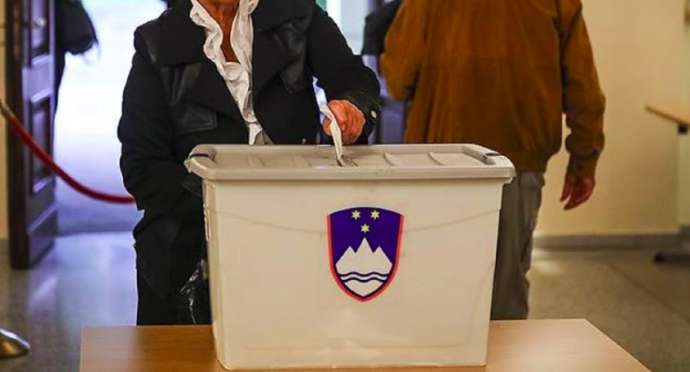STA, 17 January 2019 - President Borut Pahor and the leaders of parliamentary parties decided on Thursday to draft changes to the electoral law following a Constitutional Court decision before the parliament's summer recess. However, neither the idea to change electoral districts nor the idea to abolish them enjoys enough support.
Pahor met the party leaders to see how they feel about possible amendments to electoral legislation after the top court declared last December the legislative provisions determining the size of electoral districts for general elections unconstitutional.
Since the number of constituents differs greatly from one district to another, the votes of those who cast their ballots in smaller districts count more than those cast in larger districts.
Slovenia has ten electoral units, including two single-seat constituencies for the Italian and Hungarian minorities. Each of the remaining eight units is divided into eleven districts to elect 88 MPs.
The Constitutional Court ordered the National Assembly to amend the legislation within two years, but did not decree by what method.
Pahor stressed at today's meeting that the legislation should be changed before the next election, which would be called in the spring 2022 at the latest, so as to avoid doubt about them being in line with the Constitution.
The minimum change to make the legislation constitutional would entail changing the size of electoral districts, which would require the support of at least 46 MPs in the 90-member legislature.
But if voters are to have more say about who will be elected MP, the electoral districts should be abolished, and party lists and preferential votes introduced. This would, however, require a two-third majority in the National Assembly or at least 60 votes.
Currently neither of the two proposals has enough support.
Pahor said as he spoke to the press after the meeting that experts would be invited to take part in the drawing up of the changes. He is also to meet the prime minister and the government secretary general in the coming days to discuss how government services could assist in this process.
Experts and negotiators from each deputy group will hold regular meetings to draw up the changes and Pahor will act as a coordinator. A task force will be set up to look into the possibilities of changing electoral districts, the president said.
The views of the parties on the changes remain unchanged. The coalition Marjan Šarec List (LMŠ), Modern Centre Party (SMC), Alenka Bratušek Party (SAB), and the opposition New Slovenia (NSi), Left and the National Party (SNS) favour abolishing electoral districts and introducing a preference vote at the level of the electoral units, but disagree over whether the preference vote should be absolute or relative.
The largest opposition faction, the Democrats (SDS), has been advocating a majoritarian system but its leader Janez Janša did not give any statements today. He said on Twitter that the SDS supported any change to the electoral system which would increase the influence of voters to MP's election and help decentralise the country.
Matej T. Vatovec of the Left said that merely changing electoral districts, which could not be geographically united, would be a waste of time. He urged parties not to delay the changes.
SNS head Zmago Jelinčič said that changing electoral districts would be difficult and Maša Kociper of the SAB said that merely changing the size of the districts would not increase voters' influence. She said that it was evident that the older, established parties did not want change.
The coalition SocDems and the Pensioners' Party (DeSUS) did not give any statements today and have so far been reserved about the changes or against abolishing electoral districts.






